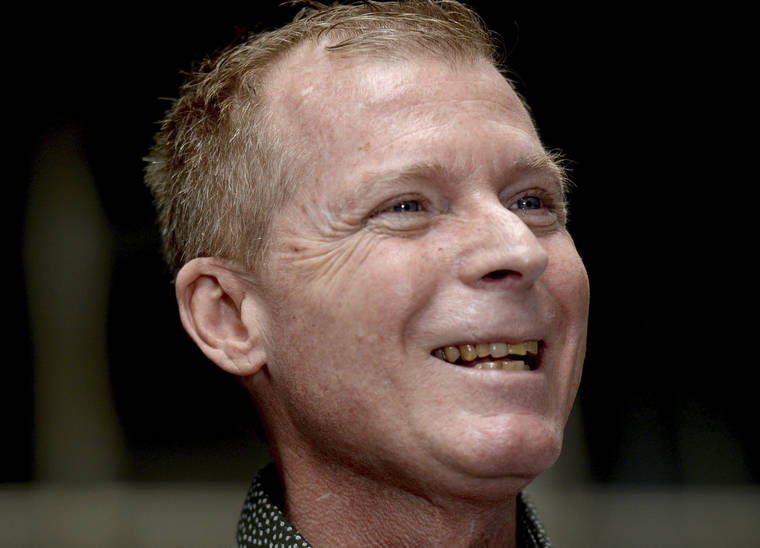SYDNEY — An Australian teacher held captive with an American colleague by the Taliban for more than three years believes U.S. special forces tried and failed six times to free them.
Timothy Weeks was released last month in a prisoner swap along with Kevin King, ending an ordeal that began with their abduction in 2016 outside the American University in Kabul, where they worked.
Weeks, 50, told a news conference on Sunday he believed that Navy SEAL teams tried repeatedly to rescue them, sometimes missing them only by “hours” after the two hostages were moved to other locations by their captors.
“I believe, and I hope this is correct, that they came in six times to try to get us, and that a number of times they missed us only by hours,” Weeks said.
One attempt came in April this year. Weeks said he was woken at 2 a.m. by his guards, who told him they were under attack from Islamic State fighters, and moved him into a tunnel beneath where they were being held.
“I believe now that it was the Navy SEALs coming in to get us,” Weeks said. “I believe they were right outside our door. The moment that we got into the tunnels, we were 1 or 2 meters underground and there was a huge bang at the front door. And our guards went up and there was a lot of machine-gun fire. They pushed me over the top into the tunnels and I fell backwards and rolled and knocked myself unconscious.”
Weeks said he and King were shifted through various remote locations in Afghanistan and neighboring Pakistan throughout their captivity, and were often kept in tiny, windowless cells.
While their lives were often at risk, he said he never gave up hope of being rescued.
“I never, ever gave up hope, and I think in that sort of situation, that if you give up hope, there is very little left for you,” said Weeks, flanked by his sisters Alyssa and Jo Carter.
“I knew that I would leave that place eventually. It just took a little longer than I expected.”
While expressing thanks to President Donald Trump and Australian Prime Minister Scott Morrison for the work that led to their release, Weeks said some Taliban guards he had encountered were “lovely people.”
“I don’t hate them at all,” he said. “And some of them, I have great respect for, and great love for, almost. Some of them were so compassionate and such lovely, lovely people. And it really led me to think about … how did they end up like this?”
He added: “I know a lot of people don’t admit this, but for me, they were soldiers. And soldiers obey the commands of their commanders. (They) don’t get a choice.”
Weeks said he had hugged some of his Taliban guards when they parted company on the day of his and King’s release.
Still, the sight of the two U.S. Black Hawk helicopters arriving to take them away had been an enormous relief.
“From the moment I sighted both Black Hawk helicopters and was placed in the hands of special forces, I knew my long and tortuous ordeal had come to an end,” he said.
“Out of a big dust cloud came six special forces and they walked towards us and one of them stepped towards me and he just put his arm around me and he held me and he said, ‘Are you OK?’ And then he walked me back to the Black Hawk.”
Weeks, from the small rural city of Wagga Wagga in New South Wales state, said his ordeal had had “a profound and unimaginable effect on me.”
His voice breaking, he said: “At times I felt as if my death was imminent and that I would never return to see those that I love again but by the will of God I am here, I am alive and I am safe and I am free.
“There is nothing else in the world that I need.”






Pakistan is a terrorist State that promotes and support not just the Talban, but other extremist radial groups. We should strike their camps with total disregard to what Pakistan says.